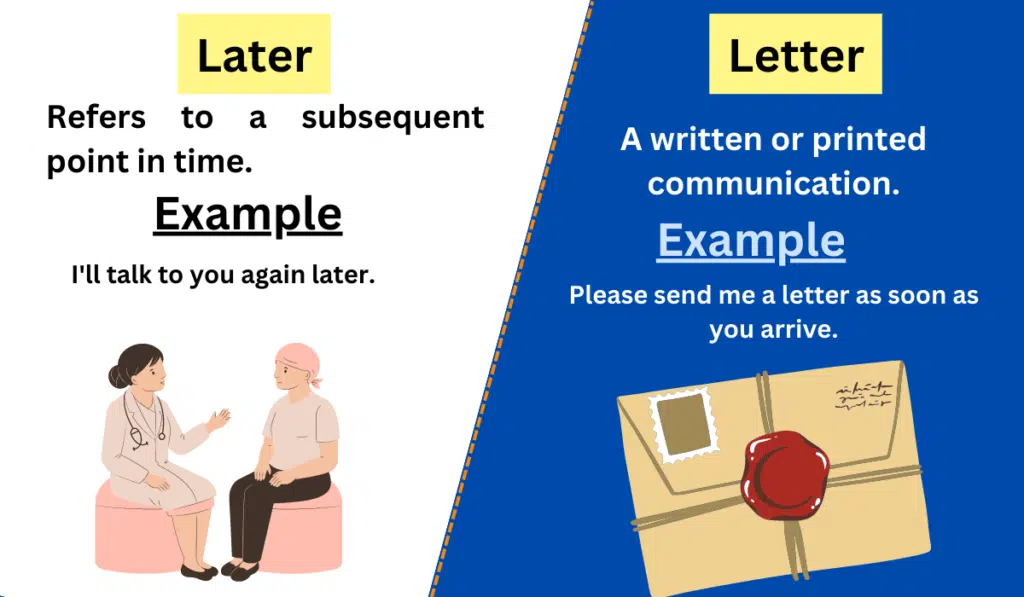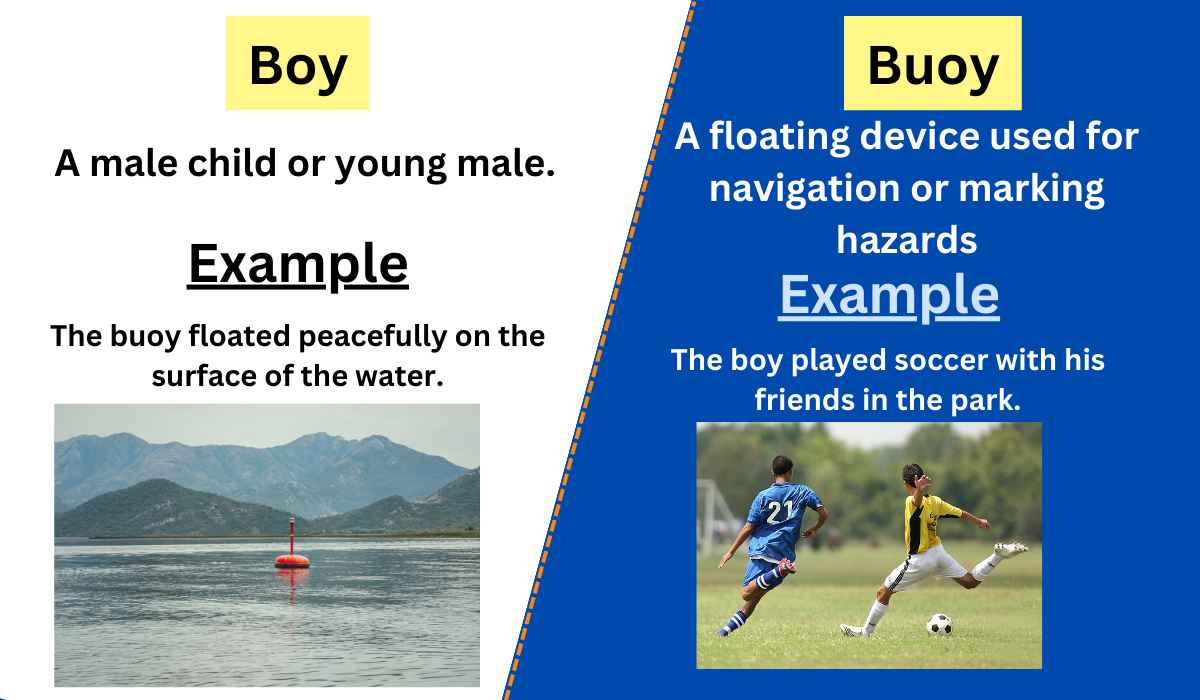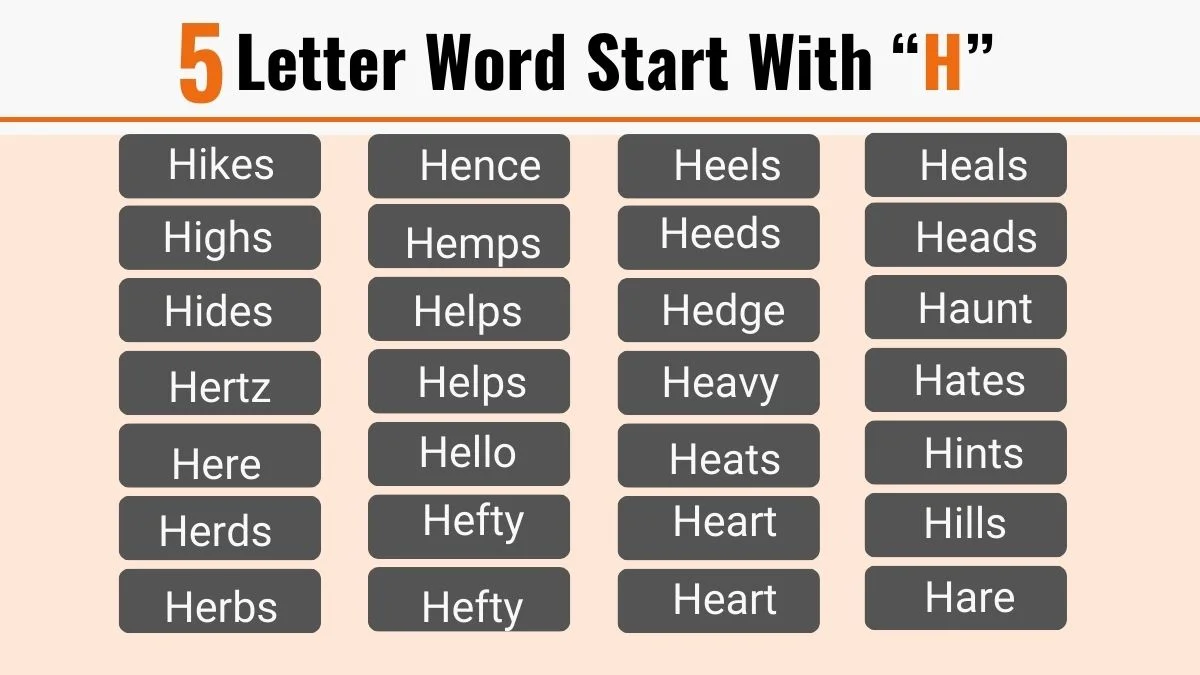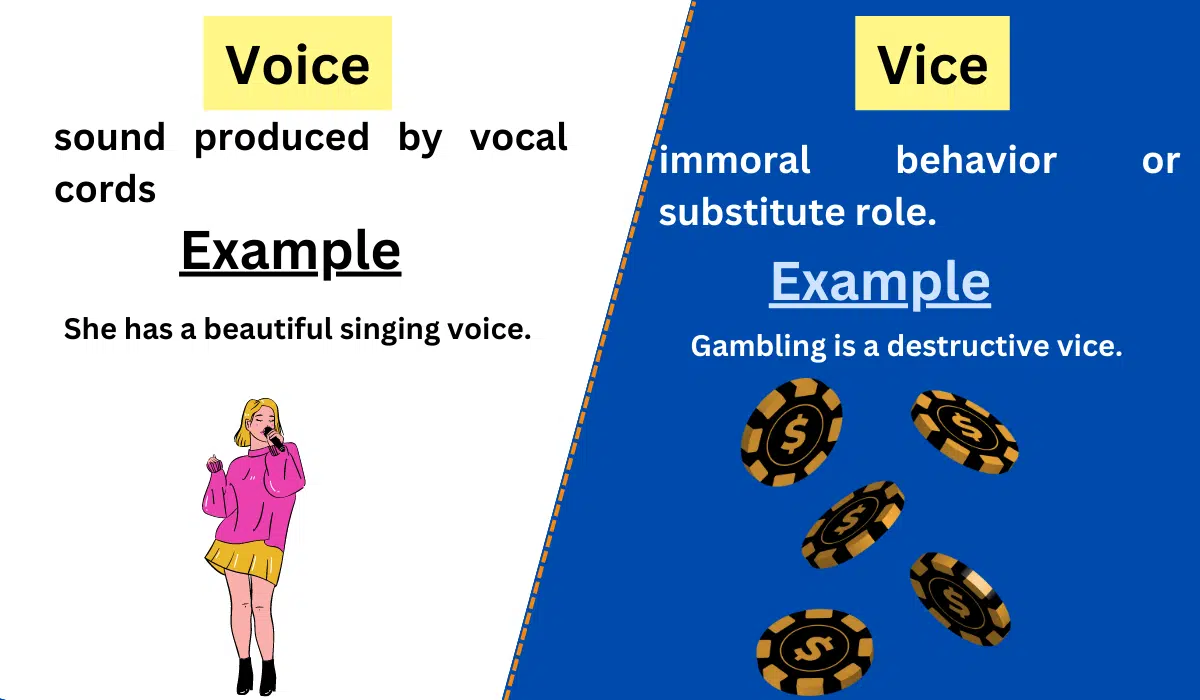Later vs. Letter-Difference Between and example
In the vast landscape of language, certain words may sound similar but possess distinct meanings and serve different purposes.

Among such pairs is “later” and “letter,” two terms that, despite their phonetic resemblance, encompass contrasting concepts related to time and communication.
This article embarks on a linguistic journey to unravel the nuances between “later” and “letter,” exploring their definitions, contexts, and applications.
By discerning their unique identities, we can navigate the realm of language with precision and clarity.
Join us as we distinguish between the concept of time and the written form of communication, uncovering the differences between “later” and “letter.”
Meanings and Examples
Later Definition
Definition: “Later” refers to a subsequent point in time, indicating a delay or a future occurrence.
Examples of Later
- I will meet you at the park later this afternoon.
- Let’s discuss the matter further during our meeting later in the week.
- I haven’t finished the report yet; I’ll complete it later today.
Letter Definition
Definition: “Letter” denotes a written or printed communication, typically on paper, sent from one person to another.
Examples of Letter
- She received a heartfelt letter from her best friend who lives overseas.
- I wrote a formal letter of resignation to my employer.
- He found an old love letter tucked away in a forgotten drawer.
Difference between Later and Letter
| Category | Later | Letter |
| Meaning | Refers to a subsequent point in time | A written or printed communication |
| Example | “I will meet you at the park later this afternoon.” | “She received a heartfelt letter from her best friend.” |
| Usage | Indicating a delay or future occurrence | Written communication, correspondence |
| Context | Time, scheduling, plans | Communication, writing, correspondence |
Usage in a Paragraph
The word “later” finds its home within the realm of time and scheduling. It denotes a subsequent point in time, indicating a delay or a future occurrence.
When used in conversations, “later” helps us navigate the temporal landscape, allowing us to discuss plans, appointments, and events that are yet to come.
Whether meeting someone in the near future, rescheduling a commitment, or referring to a specific time later in the day or week, the term “later” emphasizes the concept of time progression and the sequence of events.
On the other hand, the term “letter” diverges from the notion of time and delves into the realm of communication.
A letter is a written or printed form of communication, traditionally conveyed on paper and exchanged between individuals.
It serves as a means to express thoughts, convey information, share emotions, or engage in correspondence.
Whether in the form of personal letters, business communications, or official correspondence, the written word holds a powerful place in human interaction, fostering connections and preserving the art of communication.
Although “later” and “letter” may share some phonetic similarities, their meanings and applications diverge significantly.
“Later” pertains to time, indicating a subsequent point or future occurrence, while “letter” relates to written communication, encompassing a wide range of personal, professional, and official correspondence.
By understanding the distinctions between these terms, we enhance our ability to communicate effectively, express ideas clearly, and navigate the complexities of language.
Through the exploration of “later” and “letter,” we gain a deeper appreciation for the intricacies of language and its diverse avenues of expression.







Leave a Reply